The 2016 Belarusian People’s Congress: the Illusion of Democracy

The Fifth Belarusian People's Congress will take place in Minsk on 22-23 June. The event will bring together 2,500 carefully selected participants from all over the country representing the branches of the government, industry and business, science, health and culture.
This Soviet-styled Belarusian institution is President Alexander Lukashenka’s preferred means of communicating with the electorate. The president convened the first Congress in 1996 to rally support for a constitutional amendment that would strengthen the powers of the executive. Over time, this institution has become the centrepiece of presidential election campaigns.
At this year's Congress, the president promised to present a strategy on how to overcome the economic crisis. Lukashenka may be hoping to use Congress as an opportunity to improve his public image. However, the Congress seems to have lost its charm with most Belarusians. Few will take the president's promises seriously this time around.
The origins of the People's Congress
The People's Congress, despite an awe-inspiring name, has little to do with real decision-making. Its main purpose is to help the regime to communicate its policies to the Belarusian public. In fact, the constitution doe not even mention the Congress.
Lukashenka convened the first People's Congress in 1996, on the eve of the referendum on the expansion of presidential powers. Having the constitutional amendments approved by the People’s Congress prior to the referendum helped Lukashenka to override the objections of parliament and the Constitutional Court. Not surprisingly, the president has hailed the Congress as “the highest form of the Belarusian democracy.”
The 1996 Congress gathered five thousand people from different parts of Belarus. Subsequent events brought only half as many delegates. As part of the nomination of Congress participants, the government elects loyal representatives of all professions. At the end of each Congress, these people rubber-stamp the president's five-year program.
The Belarusian People's Congress played an important role in Lukashenka's electoral campaigns in 2001, 2006 and 2010. On each occasion, the president gave a long speech in front of the delegates. The speech typically summarised the events of the previous five years and outlined the priorities for the following five years. Lukashenka’s speech at the 2010 Congress lasted more than three hours.
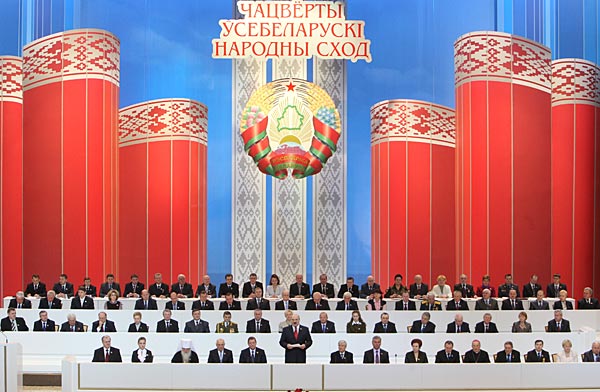
The Belarusian People's Congress is sometimes compared with the Congress of the Communist Party of the Soviet Union. Just like its Communist prototype, the Belarusian People's Congress is celebrated with great pomp and lacks serious discussion.
What is the point of the People’s Congress?
This time Lukashenka broke with tradition by waiting to convene the People's Congress until after the presidential election. One possible reason is his reluctance to discuss the dire state of the Belarusian economy before the votes were cast and counted.
On 5 April, parliament rubber-stamped the government's new socioeconomic plan for 2016-2020, formerly one of the main tasks performed by the People's Congress. What is the point of holding the People's Congress this year?
First, convening the Congress this year will allow the president to convince the public that holding the Congress in 2016 rather than 2015 has nothing to do with his policy failures, but rather the authorities decided to postpone the People's Congress on technical grounds.
Second, the president may be reluctant to break the tradition of holding Congresses. Lukashenka himself may be “mentally imprisoned by Soviet rituals," as political analyst Alexander Klaskouski argues.
Third, the Belarusian People's Congress will help rally support for the president. In the presence of several thousand people and in front of the whole country on television, the president will try to shift the blame for the crisis onto the government. In fact, Lukashenka enjoys public speaking. Oratorical talent helped him to win the first (and last) democratic election in 1994, and even though elections are no longer free and fair, regular speaking engagements remain important for maintaining his approval rating.
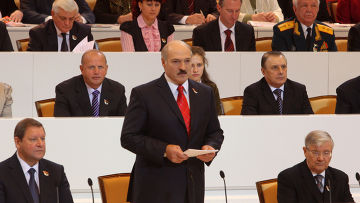
Two and a half thousand delegates will attend the Congress in June, and the authorities are trying to prepare for the meeting. State media has issued grandiose proclamations in anticipation of the event. For instance, the Belarusian Telegraph Agency wrote that “the People's Assembly will give a new impetus to the development of the country”, that “the current five-year plan will focus on improving the living standards of the nation”, and that "the central idea of the Belarusian People's Congress is the people's unity."
What to watch for at the next Congress
On 26 April, Lukashenka promised to present the Congress with "a realistic program for future activities that will serve as a guide for society."
The previously announced programmes, including Lukashenka’s 2015 electoral platform, have already partly failed. For instance, the platform promised that the government would not introduce any new taxes over the next five years, but the authorities have reneged on this and already passed several laws introducing new taxes.
The president’s approval rating is falling together with Belarus’s economy. According to official figures, the economy declined by 3.6 per cent in the first quarter of 2016 and according to the Independent Institute of Socio-Economic and Political Studies, 47 per cent of Belarusians blame the country's leader for the crisis. So, Lukashenka may hope that his next Congress performance will make the people more optimistic about the future.
Lukashenka will not be the only dignitary to speak at the next Congress. Other officials invited to speak at the Congress will be those who hold some influence within the bureaucracy. The anti-reform and pro-reform camps remain in conflict and the time allotted to speakers from each of these two opposing camps will show which group Lukashenka favours.
The Belarusian People's Congress remains in stark contrast with the Belarusian National Congress organised by several opposition groups. Pro-democratic forces organise their event almost without funds and are still facing problems finding an appropriate venue for the Congress, although it is scheduled to take place on 14-15 May. As former political prisoner Mikalai Statkevich recently stated, the Congress can even be held in the park. At the same time, the authorities spend sufficient money to organise their event.
But one thing unites both Assemblies. Although they use such titles as People's or National, few ordinary people take such words seriously. As Aliaksandr Klaskouski recently stated, the Belarusian authorities, the opposition and people live in parallel realities.




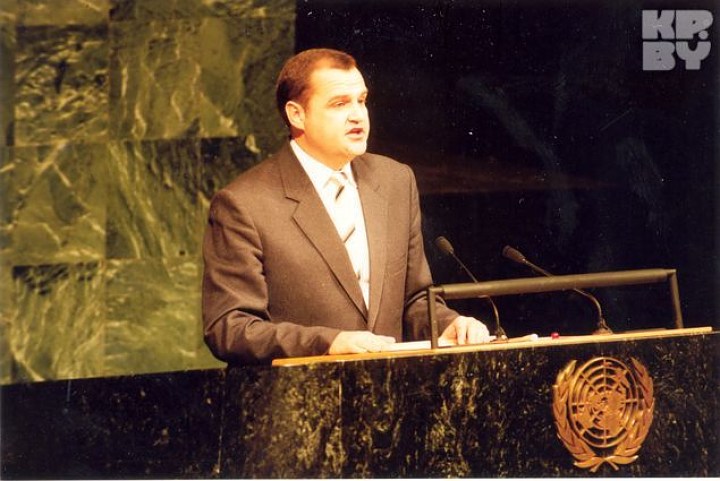 The United Nations adopted its first resolutions on Chernobyl only in 1990, when the Soviet Union was on the verge of breakup. This decision helped to jump-start numerous assistance programmes by several UN agencies and international organisations.
The United Nations adopted its first resolutions on Chernobyl only in 1990, when the Soviet Union was on the verge of breakup. This decision helped to jump-start numerous assistance programmes by several UN agencies and international organisations.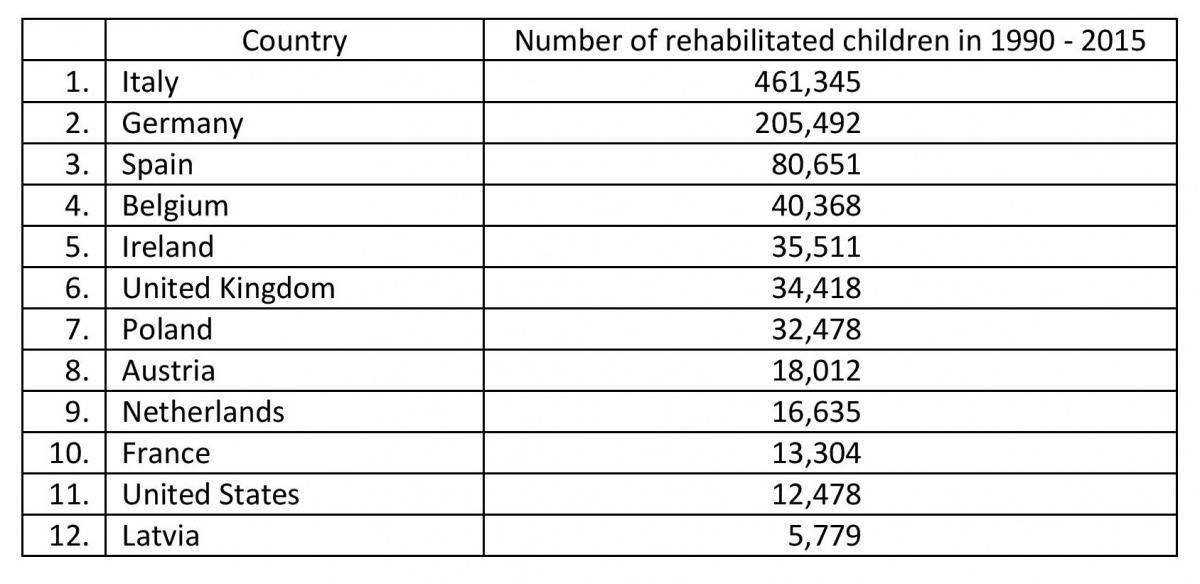 Since 2004, the number of children received by foreign countries has been gradually decreasing. This may be explained by President Alexander Lukashenka’s decision to allow rehabilitation only in those countries which have signed bilateral agreements with Belarus on this matter. As of today, 14 European countries meet this criteria. In 2015, about 16,500 children were rehabilitated in twelve countries.
Since 2004, the number of children received by foreign countries has been gradually decreasing. This may be explained by President Alexander Lukashenka’s decision to allow rehabilitation only in those countries which have signed bilateral agreements with Belarus on this matter. As of today, 14 European countries meet this criteria. In 2015, about 16,500 children were rehabilitated in twelve countries.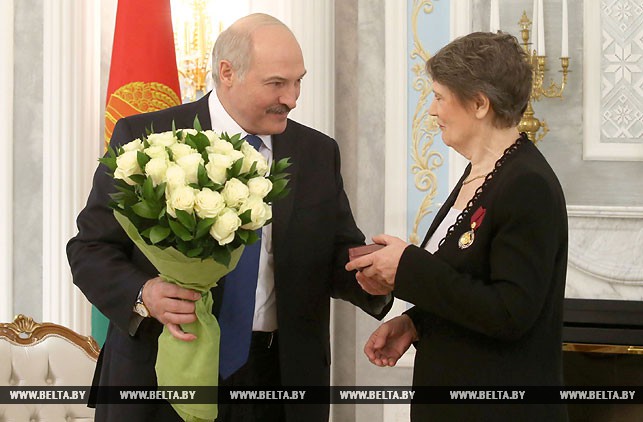 The Thirty Years after Chernobyl conference as well as the commemorative meeting of the UN General Assembly on 26 April are being used to raise global awareness of today’s needs and formulate new priorities and projects to address them.
The Thirty Years after Chernobyl conference as well as the commemorative meeting of the UN General Assembly on 26 April are being used to raise global awareness of today’s needs and formulate new priorities and projects to address them.
